REVISITING: FIRST THINGS FIRST
MAY 2022Proposal:
The field of Graphic Design and its political influence has been critiqued by designers themselves beginning in the 1960’s. The shift in public perception of design and the prioritization on consumerism is placed on pedagogy lacking a multidisciplinary design education. In addition, the evolving relationship between advertising and design is rewarded by our markets, publications, and reinforced by our “likes.” This contributes and propels a society in which we prioritize profit over people. How is this visually exemplified? Is it the due to advancement of technology? What are the long term effects of using our skills to sell? Is design helping or hurting our ability to communicate with one another?
This thesis project will assemble varied perspectives in the form of a hard copy book that provides historical perspective from past designers, current design student critiques and hopes, and my personal lens and response to the design culture we exist in.
The gathering of information will commence with close reading and annotations of the four published manifestos 1964, 2000, 2014, and 2020. Extracting language similarities and differences, noting shifts in priorities and goals and critiques. Secondary research will be found through literature reviews of these pieces, other discourse such as interviews from the writers, perspectives of other designers in the field during these periods, current day designers and their design processes and backgrounds. Simultaneously, I want to gather visual examples of this evolution and learn about the technological limitations or advances that were available at the time. Lastly, I will gather data and insight from current students working to find their place and purpose in the design world.
This project explores the implications of consumerist centered design. It is essential to trace back to the origin of what we do in order to preserve our purpose and work towards a future where design is a form of communication rather than persuasion. We cannot solve this issue with ‘ethical design’ nor is it found to be feasible under capitalism. Rather, we can learn how design is inextricably linked to ethical implications and broaden our on consciousness towards a mindset that prioritizes our environment and the humans in which we intend to communicate with.
Thesis Book






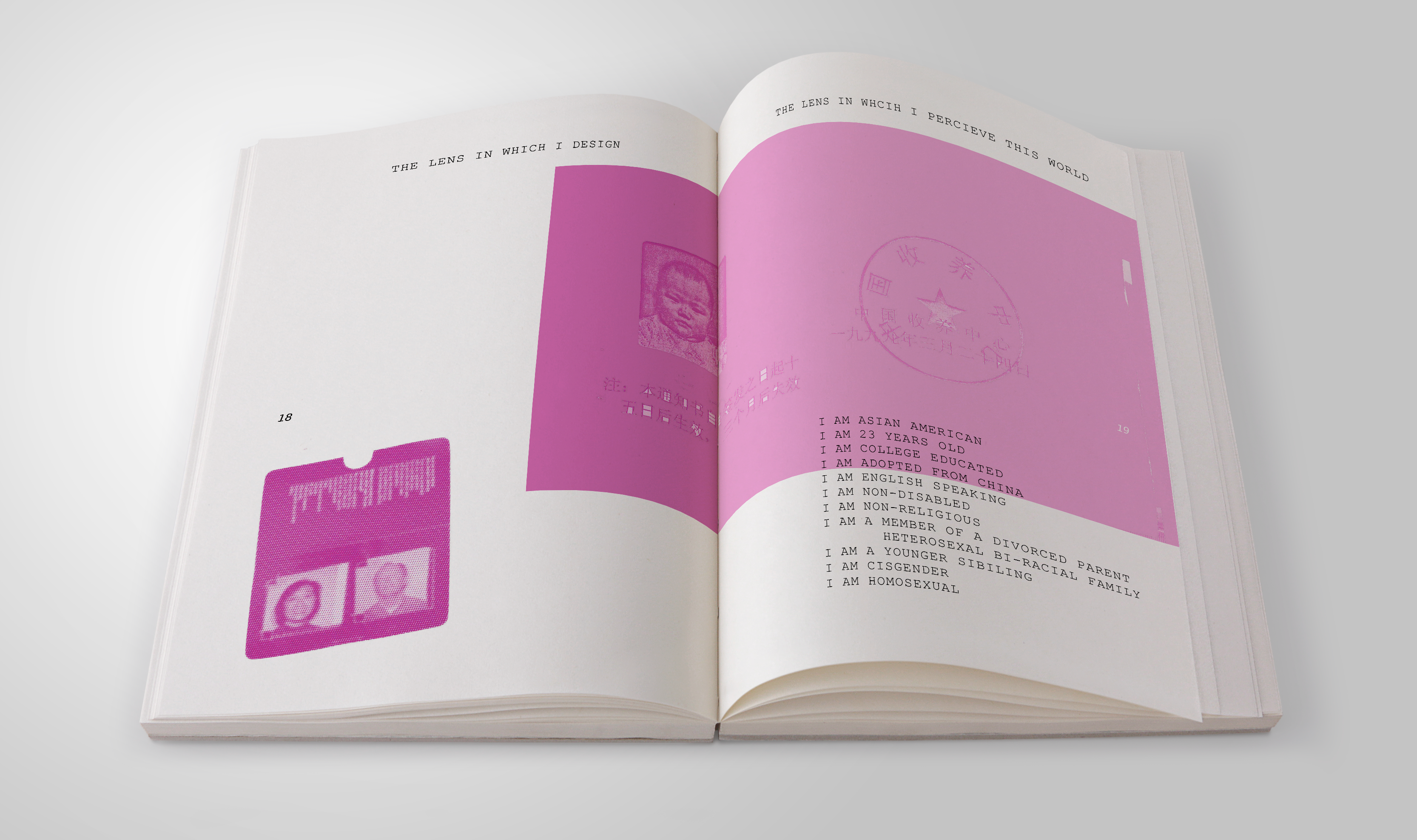
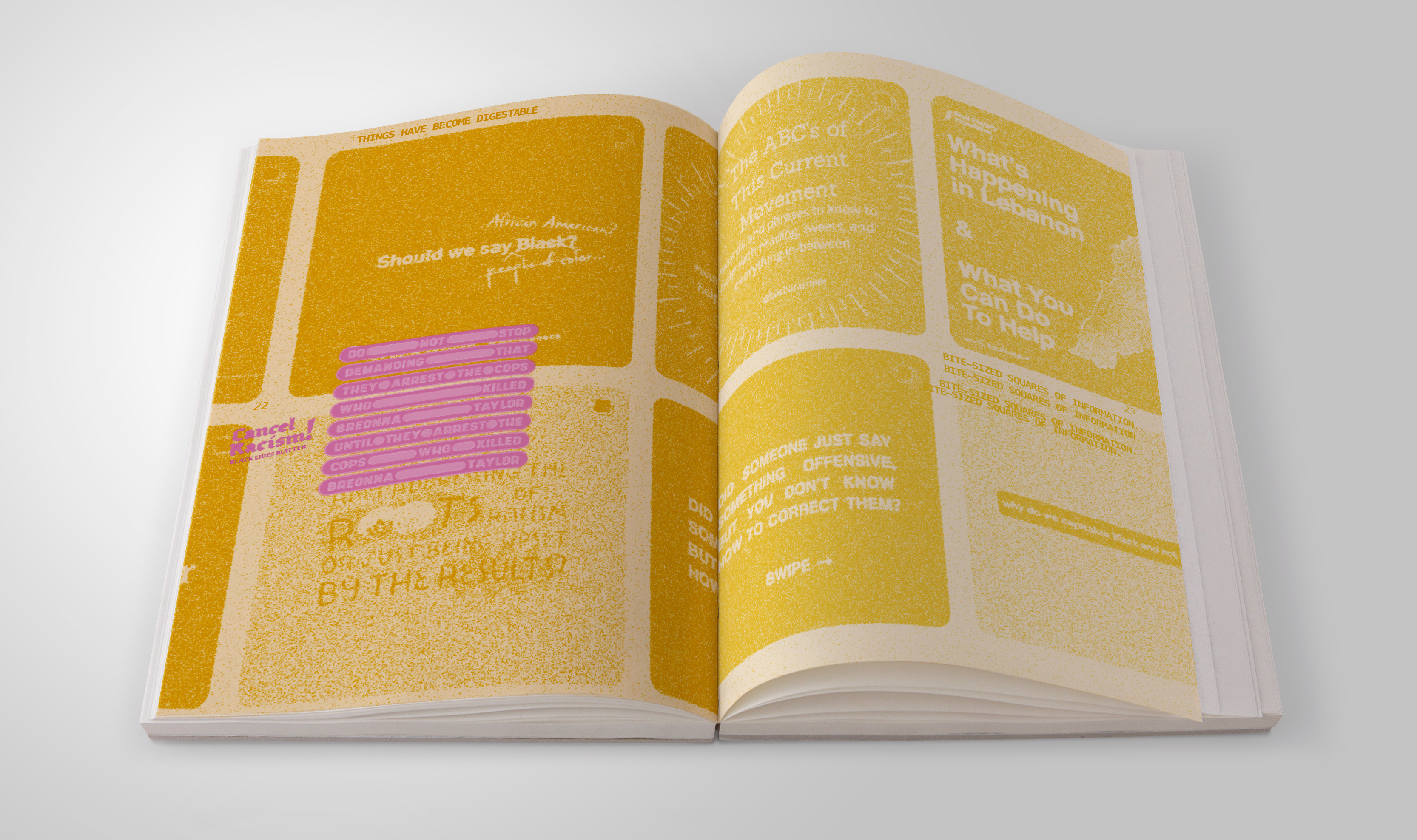
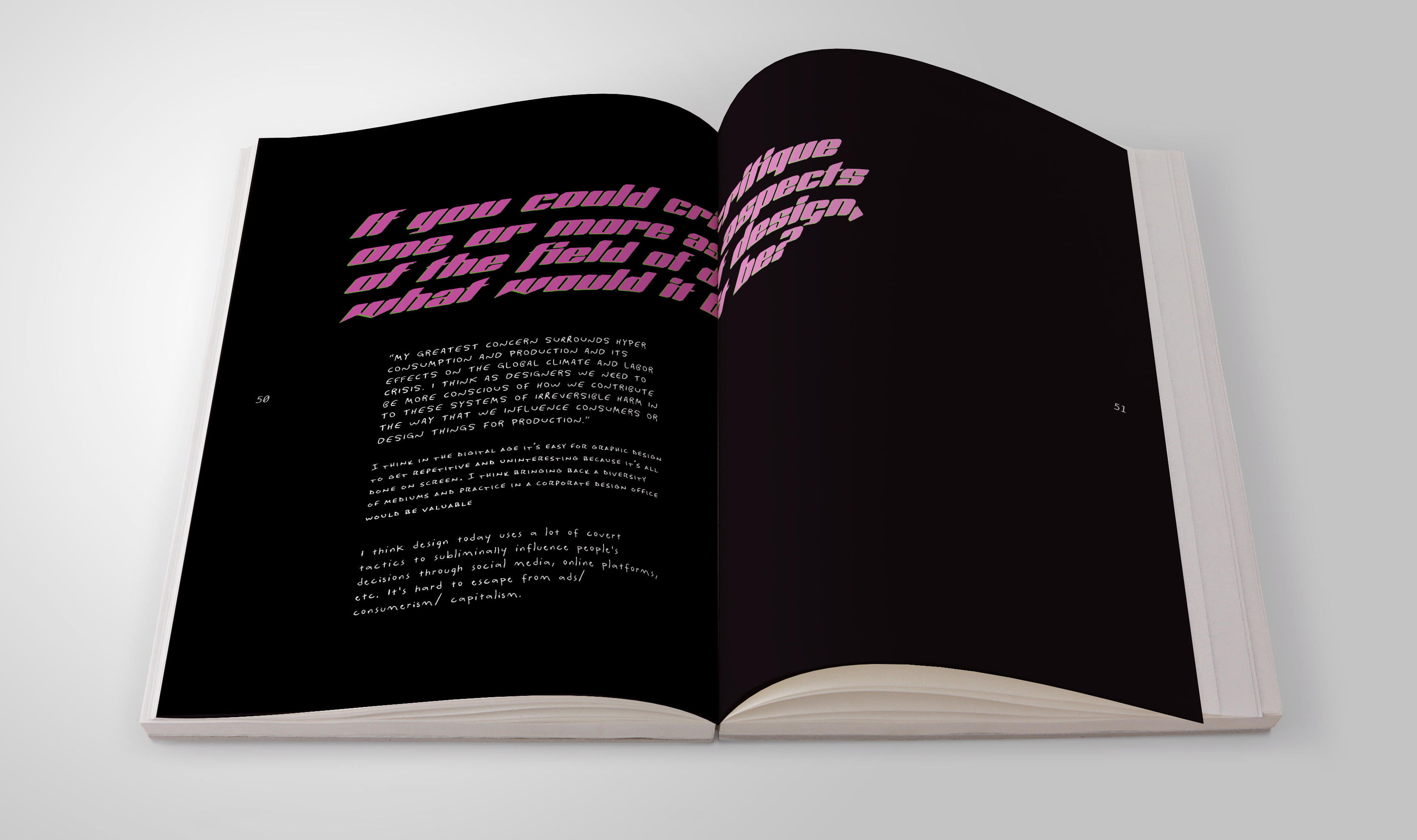
Research:




“When power and control are foremost, moral purpose is reduced to whatever is popular in the marketplace of ideas and commerce, rather than to what is right. This is the guiding principle of bad marketing and bad advertising, and it is also the guiding principle of bad design.”
-- Buchanan 1998
Student Survey
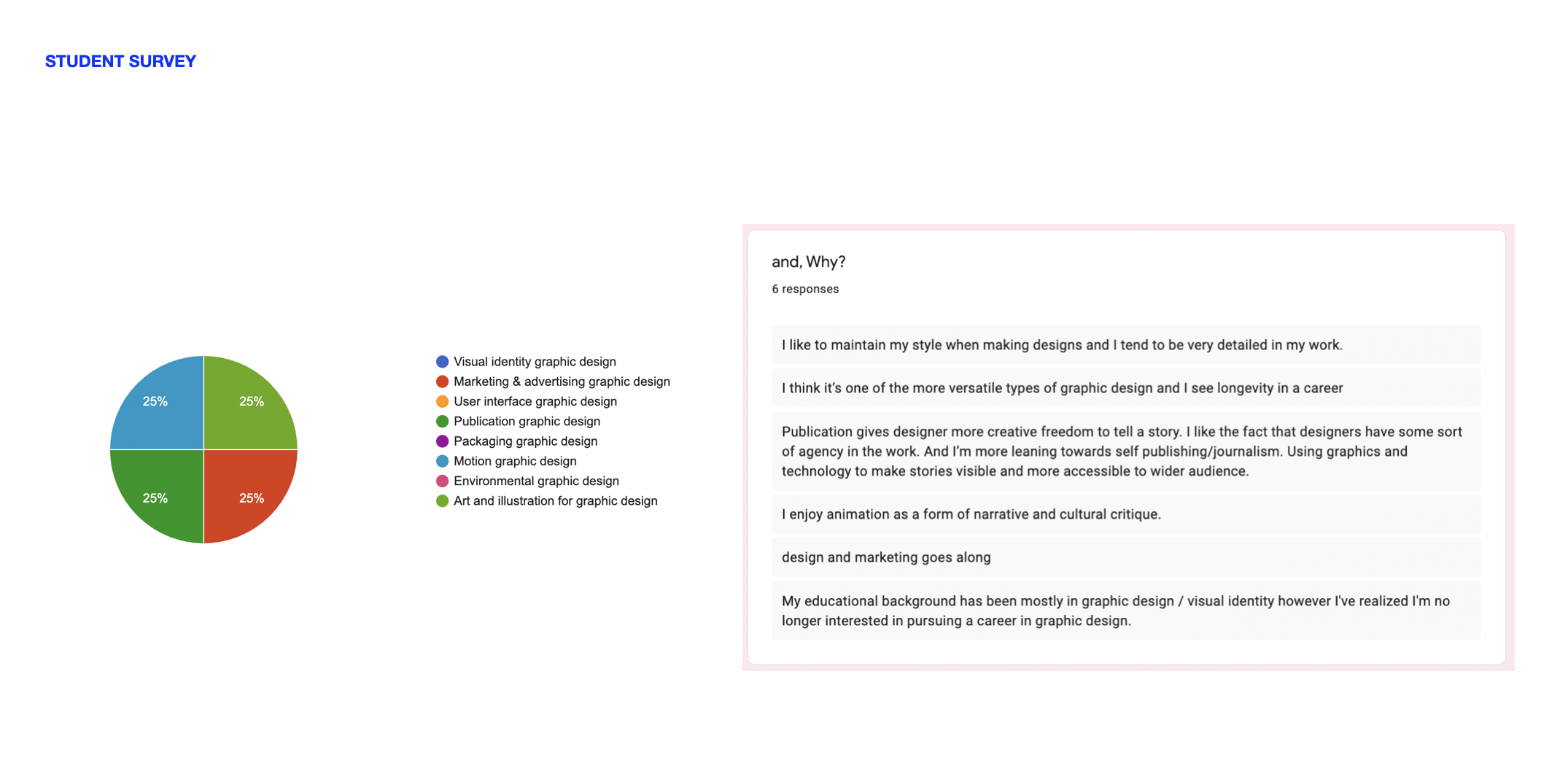

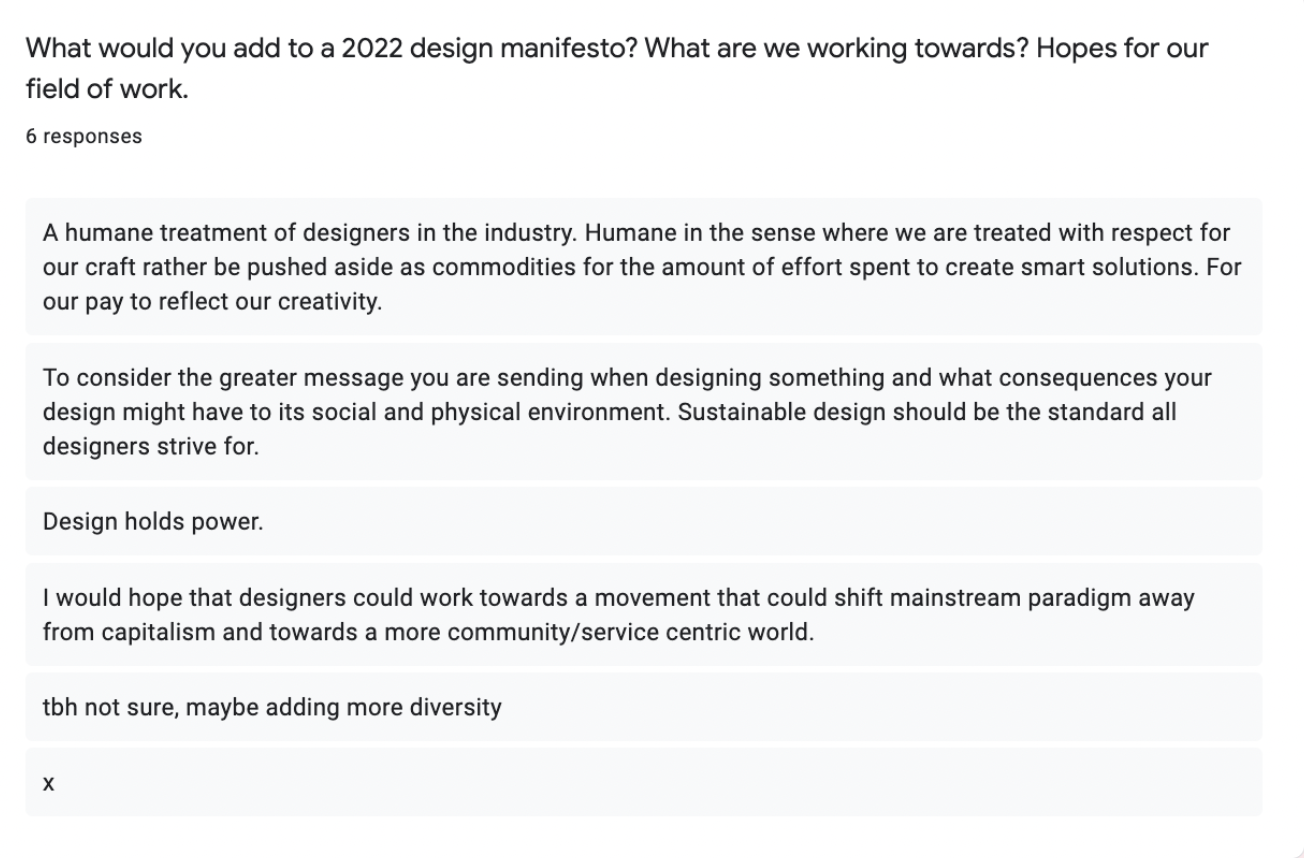

Annotated Manifesto
![]()
![]()

